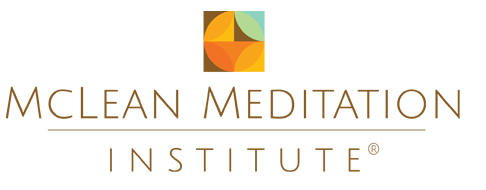Q & A with Sarah
This is an interview with Hay House about Sarah’s first book, Soul-Centered: Transform Your Life in 8 Weeks with Meditation
Sarah, is it really possible for someone to transform his or her entire life in eight weeks with meditation? How?
Absolutely. I know it for sure because it happened to me. Plus, research proves it. You may have heard that it takes 21 days for an action to become a habit. With meditation, research has proven that it takes 8 weeks for a meditation practice to make measurable changes in brain regions associated with memory, sense of self, empathy and stress. In a study that appeared in Psychiatry Research: Neuroimaging, a team led by Massachusetts General Hospital (MGH) researchers report the results of their study, the first to document meditation-produced changes over time in the brain’s grey matter.
How long have you been a meditator? How did meditation transform your own life?
I have been meditating for three decades. Meditation was an essential aspect of the transformation in my life from one of suffering and pain to one of inner fulfillment. I used to be stressed and full of malaise. Now I am living the life of my dreams—one that is authentic, rich, peaceful and fulfilling. The one constant tool I have used to transcend the noise of the world and move toward wellbeing is meditation.
What does Soul-Centered mean and how did you come up with that for the title of the book?
I came up with the term “soul-centered” to describe a shift in perspective which meditation cultivates: a transformation of the vantage point for one’s life. When you answer the question, “How are you?” Many of us look to our external world to determine the response. We base how we’re doing on factors such as our relationship status, our work life, our state of health or wellbeing, our financial situation, and even worldwide events.
When we meditate, we connect to our essence, our awareness, or what some people call “the soul,” we have a moment of respite from the external world. We experience the qualities of our awareness which are peaceful, still, accepting, and aware of the present moment.
When we regularly connect with this aspect of ourselves in meditation; it becomes more prevalent in our lives, and is no longer overshadowed by external conditions. Our vantage point changes. A meditation practice allows us to quickly access that peaceful, vibrant, creative essence and this transforms our perspective. We develop a soul-centered awareness and ultimately a satisfying life.
You’ve worked with some of the leaders in the personal transformation industry—Deepak Chopra, Debbie Ford, Byron Katie. Did each of these experts have the same message just delivered differently? What was the greatest lesson you learned from each of them and how did they influence you as a meditation teacher?
Each of them has their own unique way of being in the world and certainly each of them is an amazing teacher in his or her own right. I learned the foundational tools of meditation through Dr. Chopra. Byron Katie taught me her “work” as well as how to “love what is.” Debbie really exhibited to me the qualities of being a sweet and brave spirit in this world. They all influenced me deeply, and I am very grateful for their presence in my life at the perfect time.
Meditation seems to be becoming more mainstream. Celebrities do it, basketball coaches like Phil Jackson have their teams meditate. Does the research show that way method is better than another? Are all of the benefits the same?
There are many different ways to meditate, perhaps hundreds. I often say that the best meditation is the one that you actually do. The practice of meditation is like brushing your teeth. We do it because we like the way it makes us feel afterwards, and there are short and long term benefits that affect our lives. Research shows countless benefits of meditation: stress reduction, improvement with sleeping, lowered blood pressure, increased blood flow, decreased respiratory rate. I could go on and on about the benefits of meditation. There is really no good reason NOT to meditate. In terms of different kinds of meditation, whether you practice breath meditation, a mantra meditation, TM or simply focusing on an object or visualizing, it doesn’t matter. As long as you do it regularly. The research about the brain changing in 8 weeks was based on a simple mindfulness meditation. So it can be a very simple practice.
Many people say they just can’t meditate. It’s too hard to stop the thoughts or quiet the mind. What suggestions do you have for these folks?
Stick with it. The nature of the mind is to think just like the nature of a dog is to bark. The purpose of meditation is not to stop the thoughts or quiet the mind, although that does sometimes happen after we’ve been meditating. If a thought arises while you’re trying to meditate, and if you’re human, they most certainly will, then simply observe it without judgment, and go back to the focus of your meditation, whether it’s your breathe, a mantra or even an object upon which your gazing, such as a candle flame. Eventually, you’ll find that perhaps there is more space between the thoughts or that you’re simply observing thoughts as they arise and then letting them go. Meditation is certainly a practice that becomes easier over time, and that thoughts gradually let go. Or maybe we begin to let go of them.
What was the biggest change you’ve seen in someone who has incorporated the practice of meditation into his or her life?
I’ve seen extraordinary changes from people who’ve become free of lifelong chronic illnesses, people whose cancer went away, people who moved across the world. It might be easier to think of one person whose life meditation has NOT changed. I’ve seen people lose enormous amounts of weight after they’ve meditated regularly, those who found their life purposes.
Does meditation actually make you younger or help you create more of the youth hormone? I’ve heard that.
Yes! That’s one of the many benefits. In one study, published over a period of years in three different medical journals, the researchers measured biological age, blood pressure, vision and hearing, and they all improved for age with meditation. Those practicing meditation for five years were physiologically 12 years younger than the non-meditating group. Even the short-term meditators were physiologically five years younger than the control group.
Another study on aging and meditation was conducted by researchers at Harvard. This study evaluated elderly people who were introduced to meditation. Numerous beneficial changes occurred and the meditators lived longer on average than patients in the control group that did not meditate. A follow-up study was conducted more than 10 years later and garnered similar positive results.
We’re all so busy. Now in addition to eating well and going to the gym, I need to fit in one more wellbeing tool—meditation. And you suggest 30 minutes/twice a day? Is there a secret to how to fit it into your life?
I’ve found, and so have my students, that if you can fit in 20-30 minutes of meditation first thing in the morning, then your entire day goes more smoothly. Meditation creates space in your brain which ultimately shows up as more space in your life. So there seems to be more time and space to fit in all of the other things you want to do in life.
What is the most important idea or thought you’d like for readers to take away from your book?
Anyone can learn to meditate and experience the tremendous life-altering benefits. It’s a simple practice with extraordinary benefits that can help you live the life you’ve imagined.





